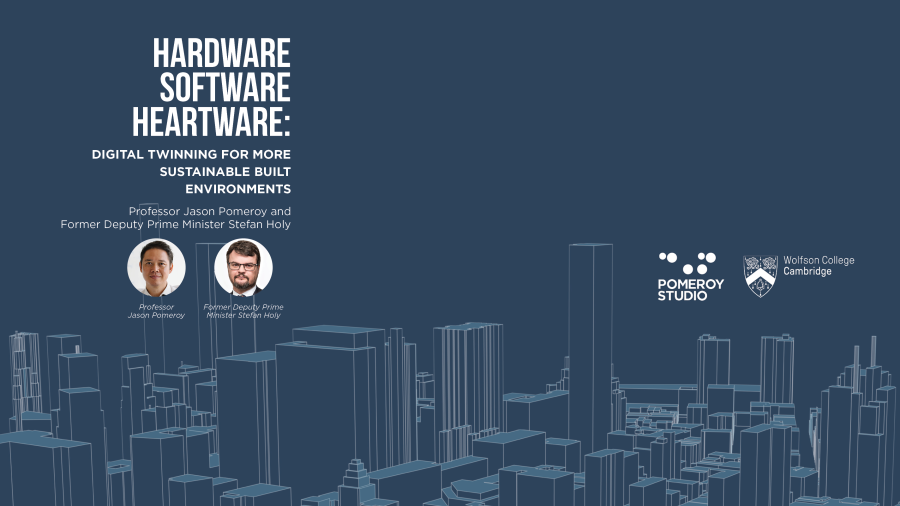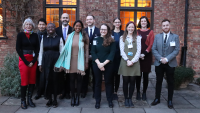
Overview
The fourth industrial revolution has fundamentally transformed our lives: our shift from the analogue world to the digital world has given life to new technologies and their revenues. The digital transformation not only bridges the gap between the two worlds but, with time, will become commonplace in the way we live, work, play, and learn. But for such a positive transformation to take place, principles of good governance and social responsibility require the collaboration between regulatory authorities, captains of industry, civil society groups and academia. A new approach to the creation of legislation, that introduces clear and transparent procedures and is based on objective digital data known to every participant from the beginning, should ensure the elimination of willful actions and the eradication of corrupt practices.
This process in itself necessitates an overhaul of the bureaucratic apparatus of yesteryear and instead engender ‘smart’ practices that can foster greater open dialogue amongst all stakeholders. This should yield optimized decision-making and consequently more positive outcomes for both people and the nation. With the shift from the analogue to the digital, we similarly have the potential to shift from the unpredictable and chaotic, to the predictable and organized. Bureaucracy (i.e., a system of governance in which decisions are taken by state officials as opposed to elected representatives) has the potential to take on a new ‘democratized’ complexion: the curation and maintenance of big data from multiple stakeholders, drawn from civil society, academia, industry and state, to create a digital ecosystem that can evaluate the fulfilment of conditions needed for specific decision taking in the public domain.
This lecture seeks to provide an insight into the legislative, and the consequent digital, transformation that led to Slovakia's National Digital Twin. It documents the process before the product that hopefully demonstrates the shift from using digital twins as siloed, automated policy formulation and implementation tools, to a more comprehensive, connected digital twin paradigm that can help create more sustainable built environments.
A digital twin can be defined as a virtual representation of an object or system that spans its lifecycle, which is updated from real-time data, using simulation, machine learning and reasoning to support decision-making.
This event is in collaboration with the Wolfson Interdisciplinary Research Hub in Sustainability & Conservation and is part of Wolfson Explores GROWTH.
Speakers
Stefan Holy is the former Deputy Prime Minister of the Slovak Republic responsible for legislation and strategic planning. In his capacity as the Slovak Republic’s DPM, Stefan has been instrumental in the reform and adoption of the new planning and construction legislation involving the digital transformation of the built environment. Stefan has also implemented a new sustainable ecosystem for affordable housing procurement, enabling the use of private funds for the benefit of the country’s missing middle population. As Slovakia’s DPM Stefan chairs the Government’s Legislative Council and is a member of the Security Council, both being the highest ranked advisory bodies of the Slovak government. Before joining the government in March 2020, Stefan was an attorney at law and has advised some of the leading global companies in construction, machinery, transportation, energy, food processing and pharmaceutical industries throughout Europe, Asia and Middle East.
Professor Jason Pomeroy is an award-winning architect, academic, author and TV presenter regarded as one of the World’s thought leaders in sustainable design. He is the Founder of interdisciplinary sustainable design and research firm, Pomeroy Studio; and sustainable educator and researcher, Pomeroy Academy. His professional career includes critically acclaimed green cities, buildings and landscapes: from the micro-scale of the first zero carbon house in Asia, to the macro-scale of Indonesia’s ‘Silicon Valley’. He lectures globally and has authored several books: most recently ‘Hardware, Software, Heartware: digital twins for more sustainable built environments’, published by Routledge. Jason has also hosted the TV series’ 'Smart Cities 2.0', 'City Redesign', 'Futuropolis' and 'City Time Traveller'. He holds a professorship at the University of Nottingham and leads a sustainable urbanism module on the IDBE programme at the University of Cambridge. He gained Bachelor and Postgraduate degrees from the Canterbury School of Architecture, a Master degree from the University of Cambridge, and a PhD from the University of Westminster. He is a Fellow of the University of Cambridge Institute for Sustainability Leadership.
Details
This event is open to all and is free to attend.
Access
This event will take place in the Combination Room on the first floor of our main building. It has step-free access with a lift and there is an accessible toilet located on the first floor of the building.
For more details please view our AccessAble guide.
